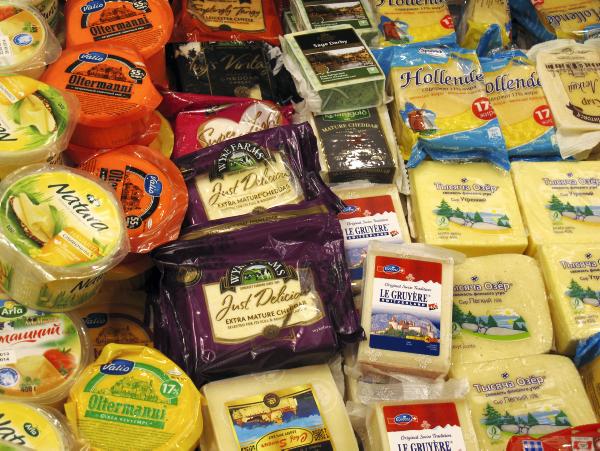Bord Bia chief executive Aidan Cotter says Irish food exports are facing a period of “uncertainty” as trading patterns are disrupted due to the Russian ban on the importation of food from Europe.
Last year Ireland exported €232m worth of food and drink to Russia. Speaking on RTE’s Morning Ireland this morning, Mr Cotter says from what details are known about the embargo so far, it would seem that over €100m of this trade is not affected. For instance, products like casein and drinks are not affected by ban. Also, the €59m worth of pigmeat exported last year, has already been impacted upon by a ban imposed by Russia last January.
Mr Cotter says that leaves around €70m worth of exports affected by the latest sanctions imposed by Russia. Of this, €40m is dairy products (mostly milk powders and cheese), €20m is seafood and €10m is beef.
He added that adjustments within the export sector have been taking place in recent months as 12 processing plants in the dairy, seafood, and beef sectors already had temporary bans placed on them by Russia.
For a more detailed insight into Russian agriculture and how Irish food exports are consumed in Russia, see these articles from the Irish Farmers Journal archive (registration necessary to read):
65% to 75% of the food for 142m Russians has to be imported
Russian dairy farms are undergoing huge development
The journey of Irish butter to Russia is long but offers huge potential
Department of Agriculture
In a statement, Minister for Agriculture Simon Coveney said his Department is currently working to clarify the specific details of the ban.
The Minister noted that initial indications were that casein, infant formula and tea extract are not being banned. Casein accounted for €11.3 m of Ireland’s €17.8m dairy exports to Russia in 2013.
Russia's ban, as announced, will have a duration of one year and will cover imports into Russia of meat, fish, milk and milk products, fruit and vegetables from the European Union. Other countries affected include the United States, Australia, Canada and Norway.
Northern Ireland
Commenting on the matter, the North's Agriculture Minister Michelle O’Neill said: “This politically motivated import ban by Russia on EU agri food produce is an unfortunate turn of events. My Department works hard to open new markets to help grow our agri food sector. Russia represents a market of particular interest to our meat exporters, particularly pork producers. This ban could have potentially greater implications for the future growth of our exports given we may be unable to progress negotiations as we had hoped."
European Commission
A spokesperson for the European Commission has said the decision by the Russian Federation to limit the importation of food from the EU was politically motivated by the situation in the Ukraine.
He added that, following a full assessment of the details of ban, the EU reserved the right to take appropriate action in response.
Watch video here:
- Last updated at 15.19






 This is a subscriber-only article
This is a subscriber-only article












SHARING OPTIONS: